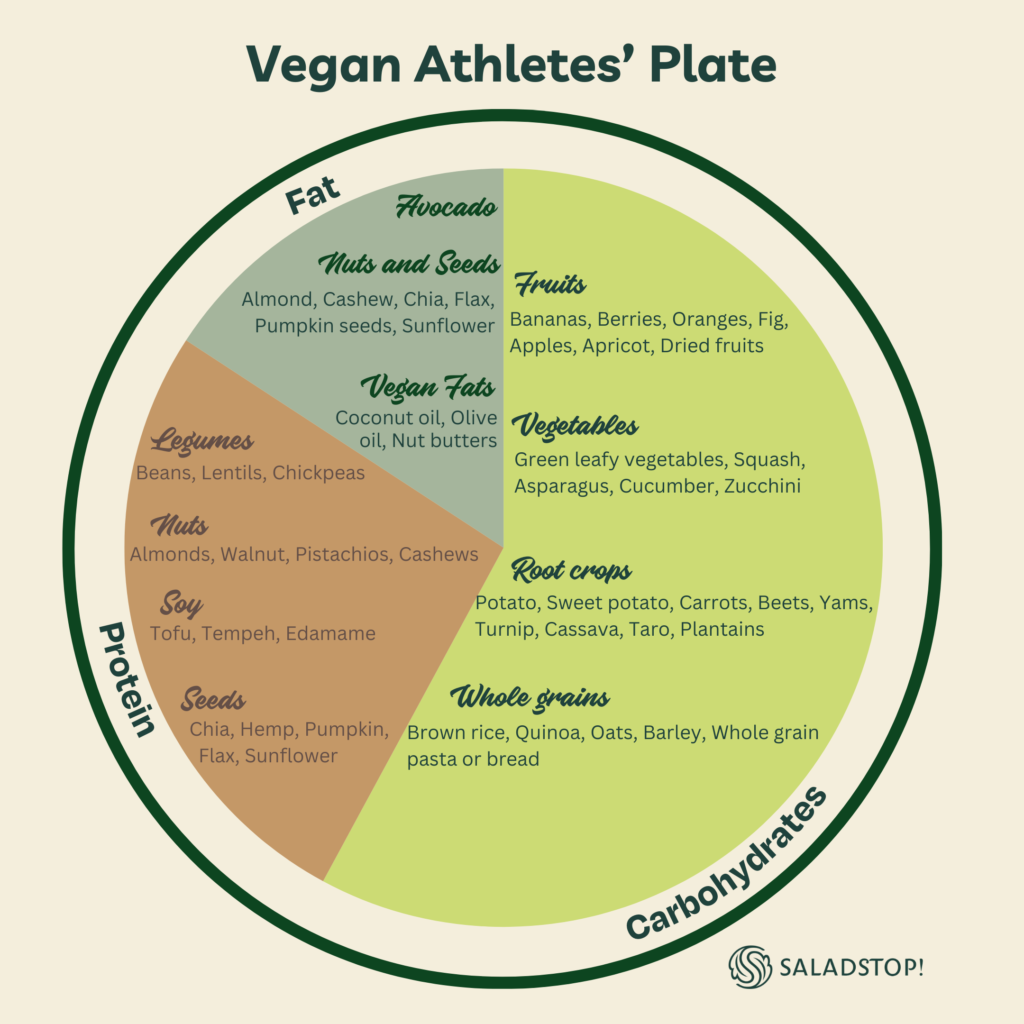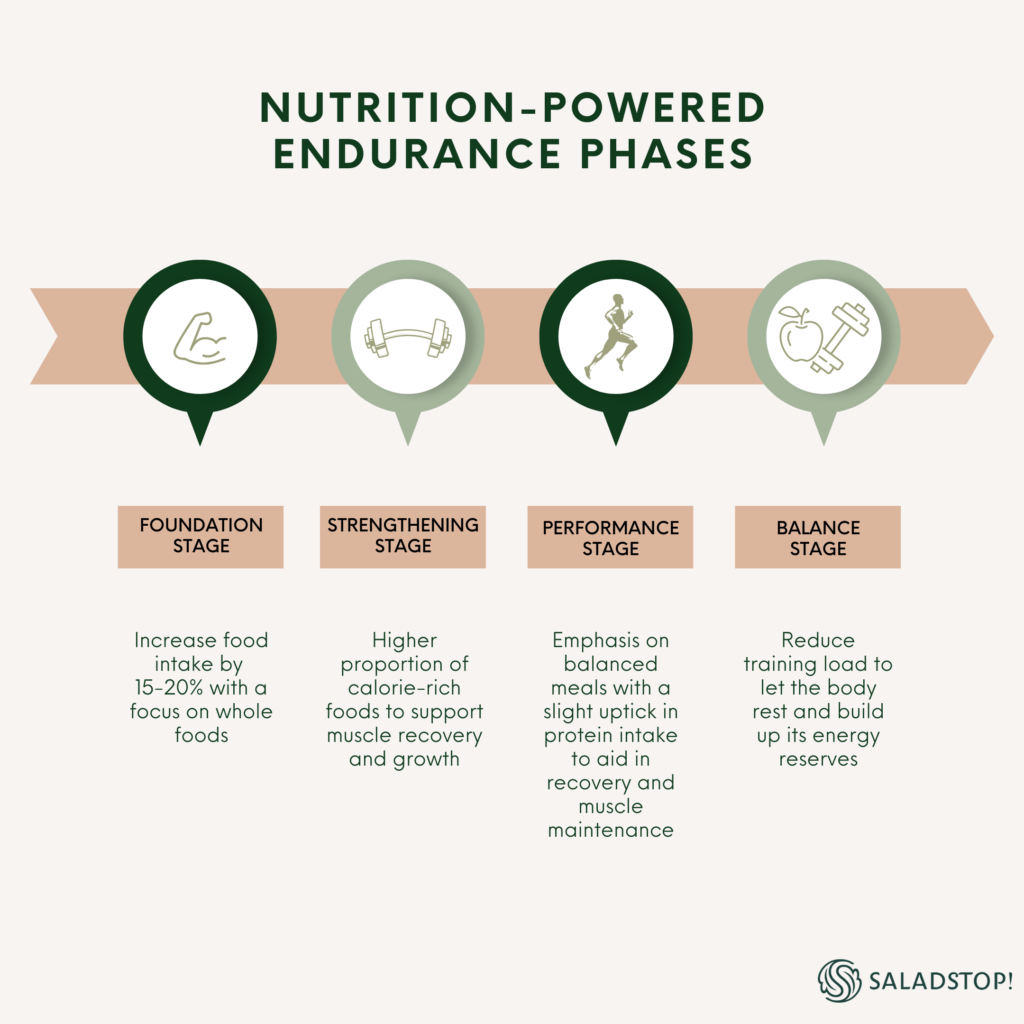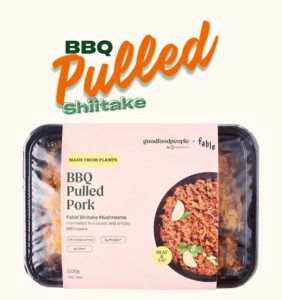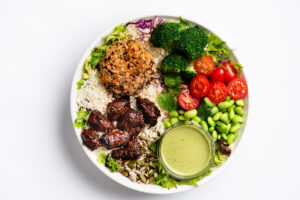Embarking on a marathon as a vegan athlete is a testament to the power of plant-based fuel. Gone are the days when animal proteins were seen as the only path to peak performance. Instead, we’re here to showcase how a well-planned vegan diet can meet and exceed the rigorous demands of marathon training, providing energy, endurance, and recovery in a sustainable, compassionate way.
Whether you’re a seasoned vegan runner or looking to transition to plant-based nutrition as you train, this space is dedicated to providing you with the insights, recipes, and tips needed to ensure your diet is as robust as your running plan. From pre-run meals that energize to post-run foods that facilitate recovery, we’ll dive into the nitty-gritty of macronutrient balance, the importance of micronutrients, and the best vegan foods to fuel your endurance endeavors.

1. The Foundation Stage: Setting the Stage for Plant-Powered Endurance
Embarking on your marathon journey begins with the foundational phase, a time that’s not just about lacing up your running shoes but also about embracing a robust plant-powered diet. It’s during this phase that the groundwork for future endurance is laid. While you might be easing into your training with gentle, low-intensity exercises, your nutrition should be anything but passive.
Nourishing for Endurance: The Base Phase Dietary Strategy
During these initial weeks, your body’s energy requirements will subtly rise as your activities increase. It’s the perfect opportunity to gently increase your intake by about 15-20% with a focus on whole foods: leafy greens, hearty legumes, and energy-sustaining starches. Pre-workout meals could include a banana with a swipe of almond butter, and post-exercise, a nutrient-packed smoothie. These small, strategic additions fuel your gradual increase in training intensity without overwhelming your system.
2. The Strengthening Stage: Building Speed and Power on Plants Once your base is established, you’ll shift into the strengthening phase, where your training picks up pace and power. Here, gym sessions will intensify, and endurance runs will stretch further. Your nutrition needs to step up accordingly.
Eating for Growth: The Build Phase Dietary Focus
With the heightened physical demand, your meals should start to reflect a higher proportion of calorie-rich foods to support muscle recovery and growth. It’s not just about more food, but smarter choices: proteins packed with amino acids, carbohydrates to replenish muscle glycogen, and fats for nutrient absorption. This phase isn’t about overhauling your diet but fine-tuning it to match your training’s intensity.
Breakfast:
- High-Protein Oatmeal Bowl: Oatmeal made with soy or almond milk, mixed with vegan protein powder, topped with walnuts, blueberries, and ground flaxseed.
- Approximate macros: 25g protein, 70g carbohydrates, 15g fat
Mid-Morning Snack:
- Chickpea Salad: A bowl of chickpeas tossed with olive oil, lemon juice, tomatoes, cucumbers, and parsley.
- Approximate macros: 10g protein, 30g carbohydrates, 10g fat
Lunch:
- GoodFoodPeople’s Pepper & Herbs Chicken (Vegan Alternative): A serving of plant-based chicken substitute seasoned with pepper and herbs, alongside a serving of brown rice and steamed kale.
- Approximate macros for 100g serving: 35g protein, 63g carbohydrates, 6g fat, 444 kcal
Afternoon Snack:
- Avocado Toast with Nutritional Yeast and Pumpkin Seeds: Whole grain bread topped with mashed avocado, a sprinkle of nutritional yeast for a cheesy flavor, and pumpkin seeds for added crunch.
- Approximate macros: 10g protein, 45g carbohydrates, 21g fat
Dinner:
- GoodFoodPeople’s Beyond Meat™ Juicy Beef Meatballs: Serve these plant-based meatballs with whole-wheat spaghetti, a homemade tomato basil sauce, and a side of roasted Mediterranean vegetables.
- Approximate macros per serving: 15g protein, 75g carbohydrates, 7g fat, 402 kcal
Evening Snack:
- Almond Yogurt with Mixed Berries and Nuts: Unsweetened almond yogurt with fresh berries and a mix of nuts.
- Approximate macros: 10g protein, 20g carbohydrates, 15g fat
3. The Peak Performance Stage: Priming for Race Day Approaching the race, you’ll enter the peak phase, a mix of intense workouts and essential rest periods to fine-tune your body’s preparation for the marathon. This is the culmination of your training, where all elements come together.
Fueling for the Finish Line: The Performance Phase Dietary Plan
Nutrition now becomes about precision: testing and perfecting the fueling strategies you’ll deploy on race day. The emphasis remains on balanced meals, now adjusted to support the rigors of your most intense training, with a slight uptick in protein intake to aid in recovery and muscle maintenance
4. The last stretch before the race is a balancing act:
you might feel like going all out, but it’s time to ease up instead. You’ll reduce your training load to let your body rest up and build up its energy reserves for the big day. When it comes to food, now’s not the time for drastic changes. A gentle shift to include more complex carbs will help fill up your energy stores without overburdening your stomach. Think of it as carefully adding fuel to the tank, rather than flooding the engine.
Integration and Adaptation: The Vegetarian Marathoner’s Edge
Throughout each phase, the plant-based marathoner finds strength not just in the run but in the power of plant-based foods. Each step, each mile, and each meal is a building block towards not just finishing the marathon, but thriving through it.

Vegan Meal Ideas:
- Pre-Run Breakfast: Overnight oats with chia seeds, almond milk, banana, and a scoop of vegan protein powder.
- Energy-Boosting Lunch: GFP Bolognese pasta, sprinkled with nutritional yeast.
- Recovery Dinner: GFP’s Shepherd’s pie, served with a side of tomato avocado salad.
- Long Run Prep Meal: Sweet potato and black beans wrapped in a whole wheat wrap, served with a side of guacamole and salsa.
- High-Protein Dinner: GFP’s Tempeh Patties with brown rice.
- Endurance-Boosting Breakfast: Smoothie bowl with spinach, mixed berries, acai, pumpkin seeds, and almond butter, topped with granola.
- Post-Workout Lunch: Quinoa salad with GFP’s roasted Brussel sprouts, arugula, pumpkin seeds, and avocado, dressed with lemon-tahini dressing.
- Carb-Loaded Dinner: GFP’s Sheperd’s Pie and a variety of roasted vegetables.
Vegan Snack Ideas:
- Quick Energy: Dates stuffed with almond butter and a sprinkle of sea salt.
- Protein-Packed: Edamame pods sprinkled with sea salt.
- Recovery Snack: Vegan yogurt with granola and fresh berries.
- On-the-Go: Homemade energy bars with oats, protein powder, nuts, and dried fruit.
- Hydration Boost: Coconut water paired with a small bag of trail mix.
- Muscle Repair: Rice cakes topped with hummus and cucumber slices.
- Filling and Nutritious: Baked kale chips seasoned with nutritional yeast.
- Sweet Treat: Banana and peanut butter on sprouted grain bread.

Disclaimer:
At SaladStop! Group, our commitment is to empower every individual with reliable, evidence-based nutritional and wellness guidance. To earn your trust as your ultimate resource for nutritional information, our content undergoes rigorous nutritional scrutiny to ensure its accuracy, whether it’s about our offerings, culinary creations, or services. Please note that all information provided is for informational purposes only and should not be considered a substitute for professional medical or nutritional advice.




